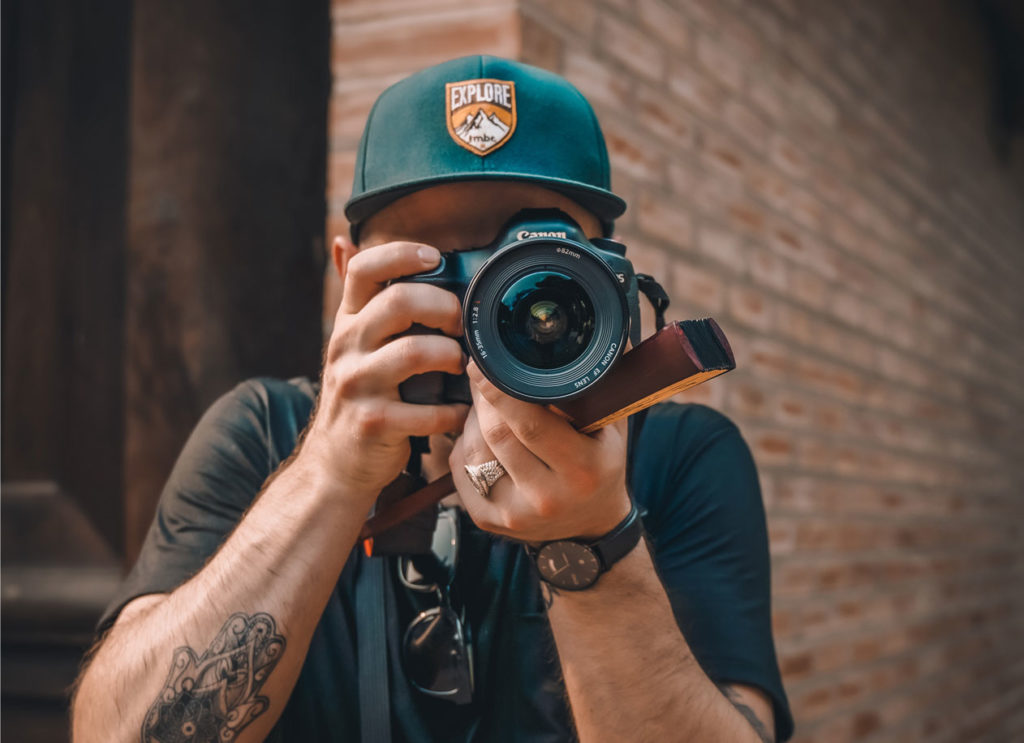
Why do you need to be careful?
If you’re a course creator who’s planning on having a photoshoot done with a commercial photographer, this post is for you. I address this topic in my Online Courses and Legal Stuff course, but thought it’d be helpful to write about it here for those who haven’t yet launched into the course.
So, why do you need to be careful when hiring a commercial photographer to take photos of you or other things for your course? The short answer is that you need to be careful to ensure you get all the rights you need to use the photos being taken for any purpose you might want to use them for.
Copyright ownership and licensing
Let me touch briefly on who owns the copyright when you pay a photographer to take photos for you. This is an important question because a copyright owner can usually do whatever they want with their copyright works. I’ll address the law in a handful of countries.
In some countries, the default position under the applicable copyright law is that the photographer is the first owner of the copyright. That’s the position in, for example, the United Kingdom and Canada. It’s also the position in the United States, unless an agreement between the photographer and the client states that the photography is a “work for hire” (in which case the client owns the copyright). In other countries, the default position is that the person who commissions or hires the photographer is the first owner. That’s the position in, for example, New Zealand. In some countries there are weird hybrid situations. For example, in Australia, if a person commissions a photographer to take photos for a private or domestic purpose, like a wedding, the commissioning party, and not the photographer, is the first owner of copyright. However, perhaps somewhat strangely, if – when the commissioning agreement is made – the commissioning party makes known to the photographer why they want the photos taken, the photographer can restrain uses of the photo for other purposes. To make matters even more complicated in Australia, if a photographer is commissioned to take photos for a commercial purpose, the photographer owns the copyright. Moving to civil law European jurisdictions, let’s have a quick look at Germany. In Germany, when someone pays a photographer to take photos for them, the photographer owns the copyright.
In countries where the default legal position is that the client is not the automatic owner of the copyright in the photos (for example, the United Kingdom, Canada, often in the United States, and Germany), the client will usually obtain a licence to use the photos for certain purposes. But it can be important to understand that in many cases that licence may not be as broad as you want. In other words, it may put limits on the purposes for which you can use the photos that you have paid to have taken, and sometimes that can affect the use of photos online to a potential worldwide audience. It can mean that, if you want to use the photos for some other purpose, you’d need to obtain permission from the photographer, and the photographer – in turn – might then try to charge you more money for that.
Now, even in countries where the default position is that the client owns the copyright in the photos (like New Zealand and, in some situations, Australia), that default “client owns” position can be modified by agreement. So, for example, an agreement or terms of trade you accept with the photographer might transfer copyright ownership to the photographer, and that agreement would usually grant a limited use licence back to you. So in these circumstances, too, you may not get all the rights you want, unless you’re very clear about that upfront, and you make sure that the documentation contains a licence allowing you to do what you want to do.
Practical implications
So, in all cases, I suggest it’s desirable to check – before you commit yourself to a potentially expensive arrangement with a photographer – the terms will apply to the arrangement. In particular, I suggest you should check what those terms say about who will own the copyright and what licence(s) the owner will grant to the other person. What you’re really looking for is whether you will have the rights you need to do whatever you want with the photos, including online. You don’t necessarily have to own the copyright in the photos (although personally that would be my preference) but, if you don’t own the copyright, you will want to ensure that you obtain one or more high resolution digital files, and that your licence – your use rights – are sufficiently broad.
Oh, and as an aside, if the photographer is taking photos of you or other people, you might want to check whether you’re happy for the photographer to use those photos in any way the photographer likes. It is common, for example, for photography contracts to say that the photographer is entitled to use all photographs for self-promotion purposes or to enter into contests. If your contract says that, the question becomes: would you want that? If not, you might want to negotiate a change to the standard terms of the contract.
